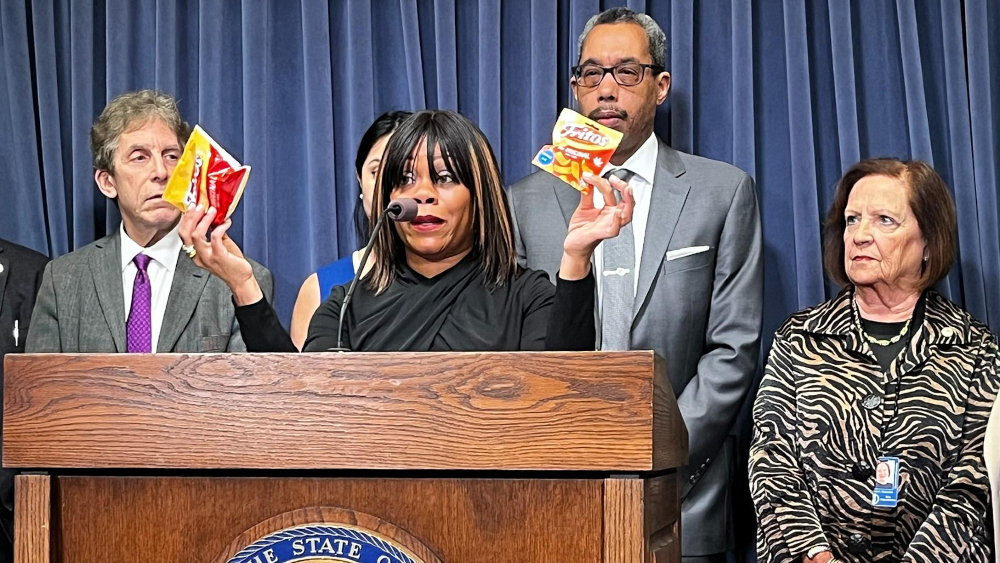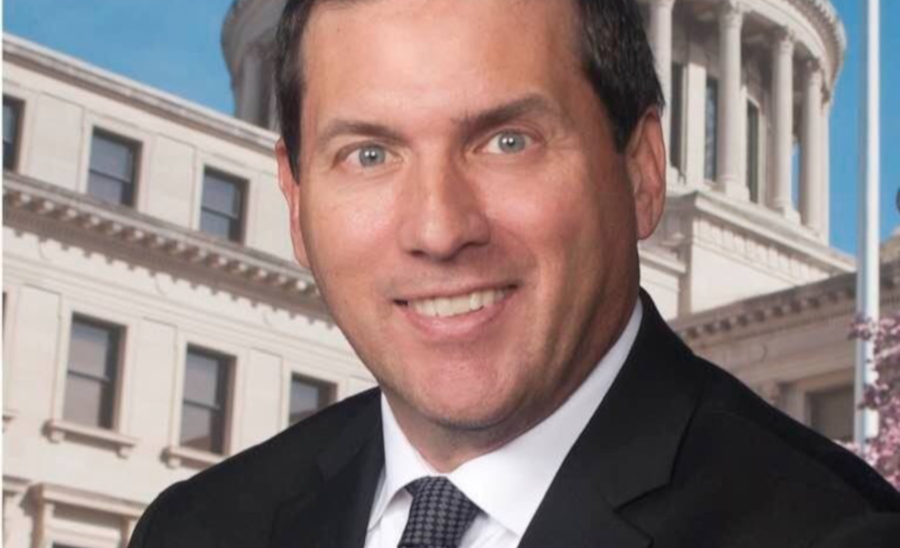Two more states have joined the growing ranks of those trying to get their arms around a runaway market for intoxicating hemp products. Legislation in Mississippi and Illinois would put the products – referred to variously as “marijuana light,” “gas station pot” and “diet weed” – under rules for marijuana.
State Rep. Lee Yancey, the author of an amendment that would update legislation in Mississippi, said the measure would push intoxicating hemp into licensed medical marijuana dispensaries, while non-intoxicating hemp products such as CBD could be sold over-the-counter in other retail outlets. Recreational marijuana is not legal in Mississippi, but licensed medical MJ dispensaries are authorized to sell products approved by the Mississippi State Department of Health.
‘Rec program’ decried
State Sen. Kevin Blackwell, who pushed for medical marijuana in Mississippi and serves as chairman of the Senate Medicaid Committee, said regulating the hemp products is a necessary step for the state.
“We restrict our medical cannabis program significantly, but if you want to call this our ‘rec program’ you can pretty much buy anything you want,” Blackwell said of the illegal hemp intoxicants, widely available in convenience stores, CBD shops and other common retail outlets.
Most of the products are produced synthetically by putting hemp-derived CBD through a process in the lab to turn out such psychoactive compounds as delta-8 THC, delta 10 THC, THC-O-acetate, and THCP.
Dodgy products proliferate
After the market for over-the-counter CBD extract health aids boomed and then busted beginning in 2019, companies left holding backlog CBD stocks started selling them to the dodgy producers of the psychoactive compounds, with delta-8 THC being the most popular of the substances, primarily used in gummies and other snacks.
The U.S. Food & Drug Administration (FDA) has repeatedly warned consumers about hemp-derived intoxicants, noting that the unregulated and therefore often unsafe products may contain harmful chemicals, and should be kept away from children and pets. The FDA has also warned producers that the products are not categorized under GRAS (generally recognized as safe) guidelines and that any food containing the compounds is therefore also adulterated.
In March, top law enforcement officials from 20 states and the District of Columbia signed on to a bi-partisan letter urging Congress to use the upcoming Farm Bill to address the spread of intoxicating hemp products, suggesting the 2018 version of the agriculture legislation has both failed to create commodities markets for hemp food and fiber products while simultaneously creating “a significant threat to public health and safety . . . benefiting unregulated, untaxed, and unaccountable market actors.”
Unfair competition
Recreational and medical marijuana stakeholders have argued the hemp intoxicants – sold as an alternative to delta-9 THC, the most commonly known form of THC that appears naturally in high concentrations in marijuana – represent unfair competition because they are not burdened by rules and fees in states that have legal marijuana markets.
Dispensaries authorized by the Mississippi State Department of Health pay fees up to $40,000 to sell marijuana products to individuals with an approved medical condition. Licensed retailers that sell non-intoxicating hemp or CBD products pay a $200 annual fee.
The Mississippi amendment describes “intoxicating hemp” as “any finished product intended for human or animal consumption containing any hemp, including naturally occurring cannabinoids, compounds, extracts, isolates, or resins, and that contains greater than five milligrams of total THC per container; but does not exceed ten milligrams of total THC per serving and one hundred milligrams per container.”
Retailers would still be allowed to purchase and sell CBD and other hemp products as long as those products are certified by the Department of Agriculture and Commerce.
The draft legislation also adds an additional 5% tax to the already required 7% sales tax required to be collected by retailers, and ups the age requirement for purchasers to 21.
‘Disheartened’ in Illinois

CBAI Executive Director Tiffany Ingram at a news conference in Illinois last week. (Photo: Hannah Meisel/Capitol News Illinois)
In Illinois, marijuana interests are backing a bill in the state legislature that would impose a $10,000 fine on businesses caught selling delta-8 or other unregulated hemp-derived products.
The measure would require a state task force to study delta-8 and other intoxicating hemp products to ensure their safety.
The Cannabis Business Association of Illinois (CBAI) has backed the proposed law changes, in part, for safety reasons, noting continued reports of Americans getting sick after consuming the unregulated compounds.
Businesses in the state’s legal recreational market say the hemp intoxicants represent unfair competition for enterprises that have spent thousands of dollars and years of work to get their businesses off the ground.
“It is deeply disheartening and, frankly, a betrayal by the state to allow these shops to pop up and call themselves dispensaries,” Ron Miller, a co-owner at Navada Labs and BLYSS Dispensary in Mt. Vernon, said at a news conference hosted by CBAI last week.
Kids ‘greening out’
CBAI Executive Director Tiffany Ingram said without having to pay cannabis-related taxes or other compliance costs, businesses selling intoxicating hemp are not only undercutting legitimate licensed dispensaries, but are selling the products at prices accessible to kids.
Also during the news conference, State Rep. Eva-Dina Delgado said her 15-year-old daughter has told her delta-8 products are widely available to her peers.
“As a parent, there is nothing more scary than to hear stories from your child about how kids are ‘greening out,’” Delgado said. “And when I asked her questions like, ‘Hey, are these kids getting the supply from their parents,’ she says, ‘Oh no, we just go to the corner store.’”
Chorus grows
The U.S. Cannabis Council (USCC) last week urged Congress to regulate intoxicating hemp in the same way marijuana is regulated, and to separate the compounds from non-psychoactive seed- and fiber-derived byproducts under the law.
USCC wants lawmakers to prohibit hemp products intended for human or animal consumption that contain “detectable quantities of total THC,” suggesting “products containing intoxicants which are derived from the Cannabis sativa L. plant cannot be defined as ‘hemp’” in the Farm Bill currently being drafted.
Top law enforcement officials from 20 other states and the District of Columbia last month signed on to a bi-partisan letter urging Congress to use the upcoming Farm Bill to address the spread of intoxicating hemp products across the nation.
The next Farm Bill – originally the 2023 Farm Bill but which has been repeatedly pushed back and may not be ready until 2025 – is an opportunity to sharpen up the definition of hemp after the 2018 Farm Bill, which legalized industrial hemp federally but failed to anticipate the market for intoxicating downstream products that has developed in the intervening years.

